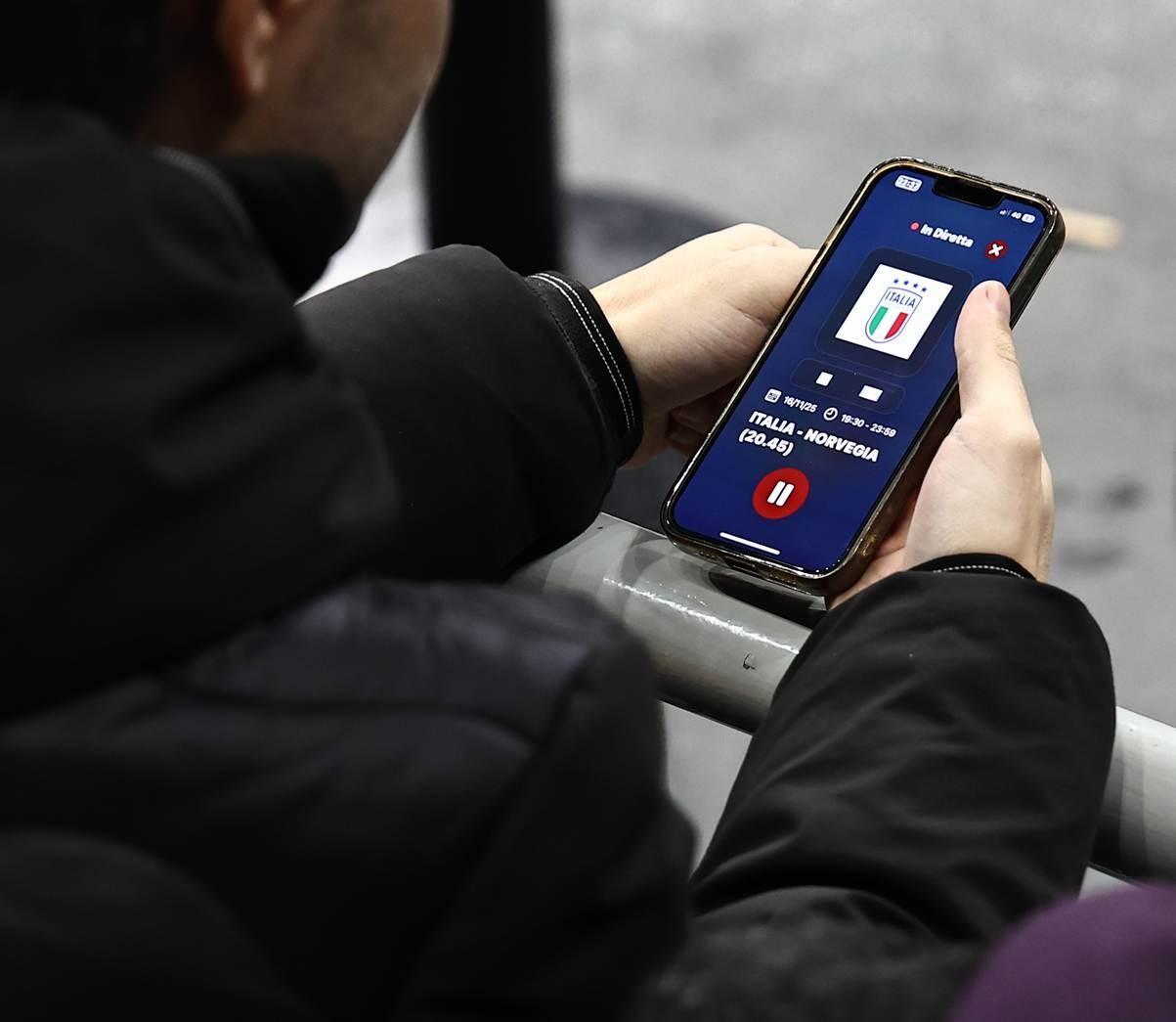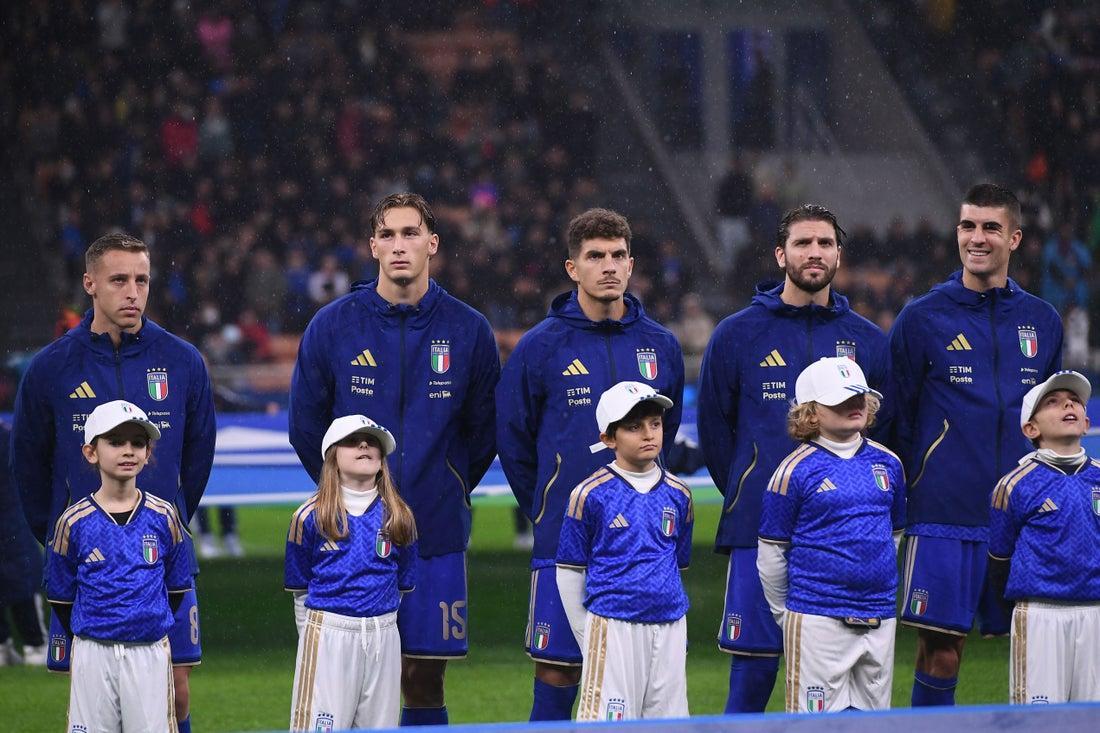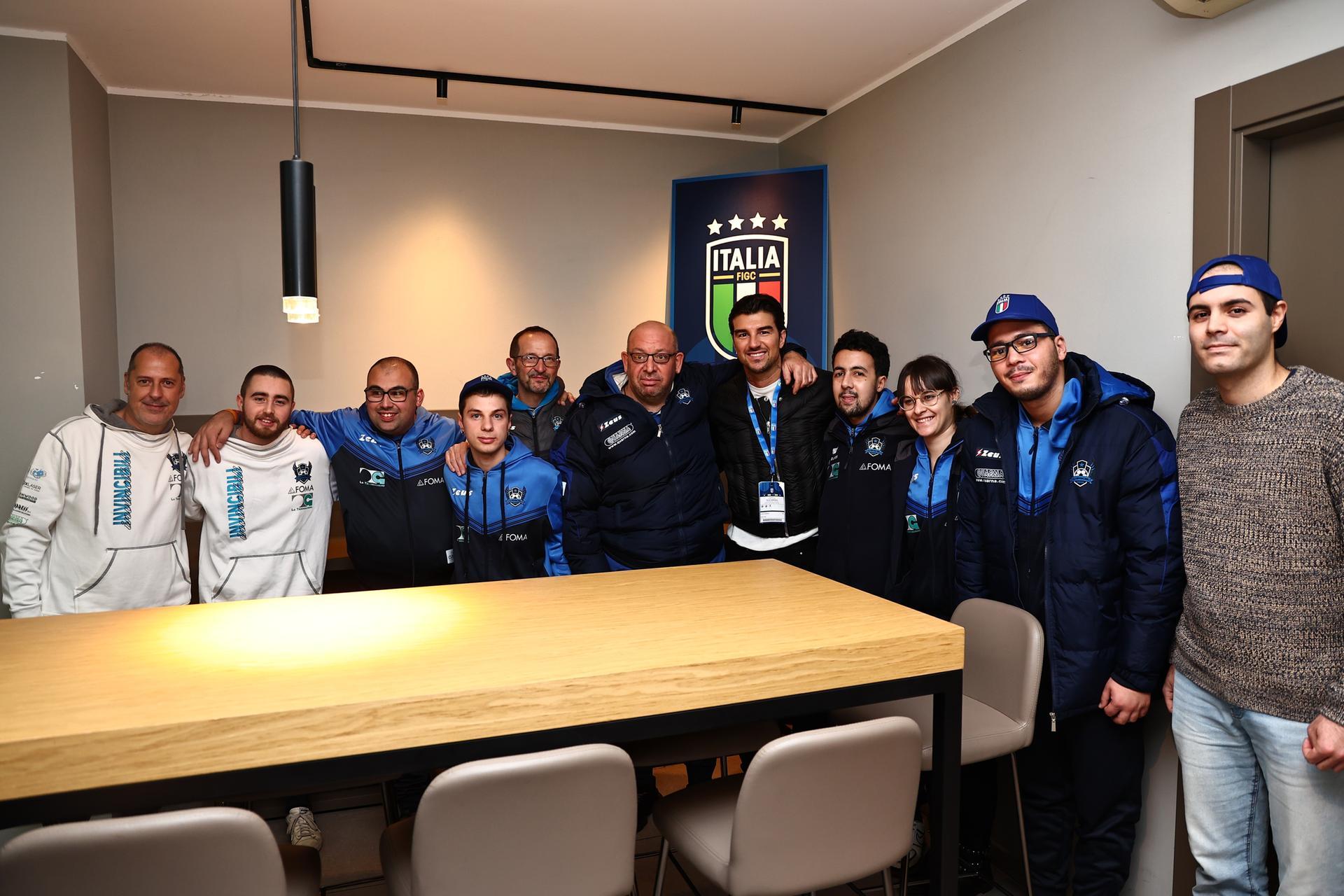PHOTO
Yesterday evening, at the Giuseppe Meazza in Milan, the FIGC were in action alongside the Azzurri as they continued the social and environmental sustainability programme (introduced with the new match format) launched in 2024. The game against Norway was the sixth fixture organised under this model, featuring several initiatives designed to promote access for all, inclusivity, and responsible resource management.
QUIET ROOMS
Two dedicated Quiet Rooms were set up in Sky Boxes Arancio 14 and 15 for supporters with cognitive, psychological or sensory disabilities, supported by the FIGC’s Paralympic and Experimental Football Division. Sixteen athletes from ‘Gli Invincibili di Omegna’ – a team taking part in the DCPS league Il Calcio è di Tutti – attended the match. The group, run by volunteers, offers sporting opportunities to young people and adults aged 20 to 45 with a range of cognitive disabilities. Three years after its launch, the team has officially become an amateur sports association. During the initiative, the athletes also received a visit from DJ, influencer and TV personality Andrea Damante, who spent time with them before kick-off.
AUDIO DESCRIPTION FOR BLIND AND VISUALLY IMPAIRED FANS
As with all Italy home matches, an audio-description service was provided for blind and visually impaired supporters. The Norway match marked the fourth occasion of this in 2025, and since its introduction the service has involved more than 200 participants. Thanks to the collaboration with CMT – Connect Me Too and its digital audio-description platform, a group from the Milan Institute for the Blind and the association Sportrealeyes, led by water-ski world champion Daniele Cassioli, were able to follow the match through detailed live narration directly on their smartphones.


PLAYER ESCORTS
The teams’ entrance onto the pitch carried significant social value. Some of the children walking out with the players were selected through the paediatric ward of the San Raffaele Hospital in Milan. A child from the charity ‘Martina e la sua Luna’, which supports young people affected by serious illnesses, was also given the chance to have lunch with the national team ahead of the match.


ENVIRONMENTAL SUSTAINABILITY
In the hospitality areas, measures inspired by circular-economy principles were adopted: sustainable catering, elimination of single-use plastics and use of organic, locally sourced products. With the support of the social cooperative 4EXODUS – collaborating with the FIGC for the third time – surplus food from the evening was collected after the match and redistributed to people in vulnerable situations, helping to reduce waste.
